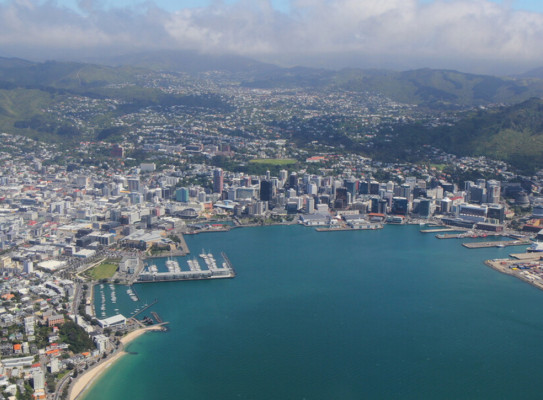
CASCADECommunication and Assessment of geohazard risk for SCience ADvicE

The programme delivers continual improvement to science advice for natural hazard risk – not just GNS Science advice but all science advice across the system – to support Aotearoa New Zealand’s risk managers.
Overview
CASCADE (Communication and Assessment of geohazard risk for SCience ADvicE) is a GNS-led programme. Stakeholders include NEMA, the Natural Hazards Commission Toka Tū Ake, MetService, NIWA, DOC, QuakeCoRE and RNC.
The project aims to
- unify and connect natural hazard and risk research taking place within GNS Science and across Aotearoa New Zealand to better facilitate:
- the communication of geohazard and risk knowledge and
- the uptake of this knowledge into preparedness and policy
To achieve these objectives, we
- engage with internal and external programmes to understand gaps, build links and identify opportunities
- engage with stakeholders to understand their requirements and work with them to improve the hazard risk management system
- ensure we are well-connected to legislative reform processes
- encourage two-way discourse between GNS and government
The programme
Connecting across the natural hazards risk management system
As the lead government research organisation for geological hazards and risks, GNS Science plays a pivotal role in connecting the many parts of the natural hazards risk management system. We are trusted knowledge brokers for this system, working collectively with other science organisations, central government agencies, local government, private enterprise and the public to enable better outcomes for Aotearoa New Zealand. In essence, GNS helps to connect the dots across the natural hazards risk management community.
The CASCADE programme identifies gaps in knowledge and processes and develops innovative ways of working with decision-makers and communities. We explore the large amount of work being covered in SSIF, GeoNet, Endeavours, DEVORA, QuakeCore and other programmes, look for any gaps or adjustments, and seek to fill these gaps to better support the delivery of National Disaster Resilience Strategy objectives.
Facilitating communication
CASCADE provides a link across all programmes within the GNS Natural Hazards and Risks theme and ensure that there is transparency of desired outcomes and engagement with stakeholders.
By ensuring excellent internal communication, we have a strong foundation for ensuring our science is communicated, understood and appropriately implemented into new policy. This is particularly important now, as there is considerable legislative change underway currently and our science influences and supports policies that will chart the future of natural hazard and risk management in New Zealand.
We deliver our science for, and on behalf of, all New Zealanders. This means we have an obligation to communicate the advances that we are making to the public. However, we are deliberate and targeted in how we do this so that:
- we reach all New Zealanders
- our trustworthiness is enhanced
- we support the career development of our staff
- we effect change in behaviour, policy and investment
- organisational risk is managed
Useful, usable and used outcomes
Over the last few years, there have been some excellent examples of how GNS’s science has been useful, useable and used. Examples include
- seismology was used to build a case for investment in DART buoys
- RiskScape has replaced the Earthquake Commission's internal loss model and now underpins the national residential building reinsurance annual negotiation
- risk-based decision-making has been embedded in land-use planning and resource management processes
- adjustments were made to the Earthquake Prone Buildings legislation after the Kaikōura earthquake
- there has been an expert review of the National Policy Statement for Urban Development under the It’s Our Fault programme
The CASCADE programme ensures that our science continues to be useful, usable and used to the benefit of all as we seek to optimize our resilience to natural hazards and risks in New Zealand.

Research programme details
Duration
2020 – present
Funding platform
GNS Science
Status
Programme leaders
Gill Jolly, GNS Science
Graham Leonard, GNS Science